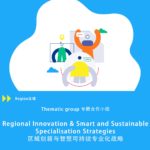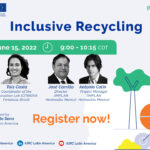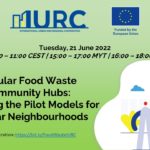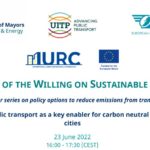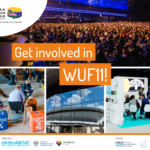
The webinar took place on 23 June 2022.
Space
–> Watch the recording here
Space
–> Agenda here
Space
–> More information: aamerico@iurc.eu
Space
Takeaways
Transport is one of the Covenant of Mayors for Climate & Energy – Europe key sectors, representing the 14.5% of actions submitted by Covenant signatories (Covenant in figures) and the 26% of the total emissions in the BEI (JRC, Covenant of Mayors 2019 Assessment). This is why the Covenant of Mayors is working with a wide range of stakeholders in the field of sustainable transport to support signatories to reduce their emissions from the mobility sector.
Space
The Covenant Office is organising a series of 5 webinars on policy options to reduce emissions from the transport sector, which kickstarted on 23 June with a focus on public transport.
Lucie Petersen from UITP set the scene about the decarbonisation of public transport to achieve local climate neutrality targets. Digitalisation, affordability, decarbonising technologies and expansion of the offer are some of the main challenges that hamper the development of a clean buses market in Europe to decarbonise publictransports. Looking at the current status of electric and hydrogen buses’ deployment in Europe, there was a ramp-up of e-buses’ sales in 2021. As for fuel-cell hydrogen buses, they are still considered expensive by city authorities, despite being increasingly deployed in some Countries such as the Netherlands, Germany and the UK.
Space
The session then looked into approaches to increase public transport ridership with two local examples. With 944km of length of bus lines, and around 600k bus passengers per day, the city of Hamburg (Germany) is making itself a pioneer at fostering public transports. Peter Lindlahr (hySOLUTIONS), explained how a mix of investments in electric and hydrogen buses, as well as in electric and hydrogen refuelling infrastructures, will make the city achieve a zero-emissions fleet by 2032. Out of 1,800 buses, 160 are electric, and a further 470 e-buses will be purchased by summer 2025.
Space
In Kansas city (US), the routes’ long-distance range, the higher capital costs for battery electric buses and the lack of mechanics in the supply chain, make investments in zero-emissions buses harder than in the European context, as explained by AJ Farris (Kansas City Area Transportation Authority).
The current share of hybrid & electric buses is 3%, and is planned to increase by 2027 in line with the new Regional Climate Action plan and the city’s Climate Protection & Resiliency Plan. To enhance public transport and reduce emissions, in March 2020 Kansas City also implemented a zero-fare policy, making public transportation free for all inhabitants, and a flexible-routes service, where digital technologies allow citizens to reserve tailored routes according to their needs.
Space
In the second block of the session, Holger Haubold, from the European Cyclist Federation (ECF), shed some light on the importance of integrated transport systems, for example between bikes and trains, also addressed in the new Rail Passenger Rights’ Regulation.Some of the strategies presented in the last ECF’s “Cyclists Love Trains” report are:having dedicated spaces on board for bikes, reserved parking spots in stations, booking channels to reserve special tickets, and integrated bike-sharing functionalities.
Space
Tais Costa from Citinova, Fortaleza (the 4th largest city in Brazil) shared how the city is investing heavily to integrate bikes in its public transport system, also as a means to fight special segregation and transport poverty. With free bicycle parking for the whole day in almost all the integration terminals, a public bike sharing system (Bicicletar) free of use with the transport card, and a 14h bike sharing system thought to meet the needs of low-income groups far from the central area (Bicicleta integrada), the city of Fortaleza is radically transforming its public transportation system to reduce the use of cars.
